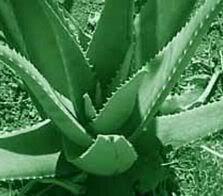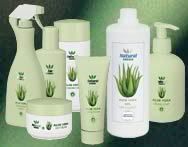|
taolao
member
ID 22451
04/11/2007

|
A ti sô - Loại cây qúy







Cây A-ti-sô khi còn nhỏ

A-ti-sô đang chuẩn bị ra hoa

A-ti-sô đang chuẩn bị ra hoa

Hoa phóng to

A-ti-sô màu tím

A-ti-sô dùng làm dưa chua

A-ti-sô dùng làm thức ăn

A-ti-sô hái nấu nước uống rất mát và có thể chữa bệnh nan y. Nếu bạn chưa uống bao giờ thì hảy dùng một lần cho biết.

Alert webmaster - Báo webmaster bài viết vi phạm nội quy
|
 |
|
doanchithuy
member
REF: 154840
04/11/2007
|




 

Dưa chua làm A-ti-sô??? Ngộ quá hé, DCT chưa từng ăn qua!
|
 |
|
ototot
member
REF: 154842
04/11/2007
|




 

Tên cuả loài rau này là phiên âm cuả tiếng Pháp artichaud; còn tiếng Anh là artichoke, chứ tên bằng tiếng Việt thuần tuý thì không có. Lý do đơn giản là người Pháp đã đem giống rau này đến trồng ở Việt Nam, và thổ ngơi thích hợp nhất ở nước ta là Đà Lạt, vì thành phố này cũng chính do Pháp lập ra để họ dùng làm nơi nghỉ mát.
Trở lại rau "a ti sô", nó có nguồn gốc ở vùng Điạ Trung Hải, cây cao khoảng 1m. Và cái mà chúng ta ăn là cái nụ hoa cuả nó, tức là cái hoa chưa nở ra hẳn thành hoa. Nhưng nôm na thì người ta gọi nó là "đầu a ti sô". Lối chế biến đơn giản nhất là luộc đầu a ti sô trong khoảng 30 phút đến 45 phút. (Khi luộc nhớ đừng đậy vung, để các acid bốc hơi bay đi, đầu a ti sô trông mới xanh đẹp, và ăn bớt vị chát.) Cách ăn là xé các cánh ra, kẹp giưã 2 hàm răng mà "tuốt" ra phần mềm; phần sơ cứng thì vứt bỏ. Càng bóc vào bên trong, càng ăn được nhiều thịt hơn. Vào trong cùng, thì ăn được tất cả, không vứt bỏ gì hết. Đó là phần quí nhất cuả "đầu a ti sô", mặc dầu vị cuả nó (ngọt giọng) thì thua xa những "cánh" bên ngoài. Và đây cũng chính là phần để "muối dưa a ti sô", còn ở phương Tây thì người ta ngâm giấm và thêm gia vị.
Y học phương Tây bảo a ti sô là thuốc bổ tự nhiên cho gan mật. Nước luộc a ti sô uống thay nước trà cũng rất bổ. Riêng Đà Lạt người ta còn lấy rễ a ti sô chế thành trà.
Trên đây là một số thông tin quan trọng và đặc thù về a ti sô mà không thấy taolao đả động đến, nên tôi xin được bổ sung.
Đây là đầu a ti sô bổ đôi để thấy rõ cấu trúc và cách ăn sau khi luộc nhừ.

Thân áí,
|
 |
|
taolao
member
REF: 154925
04/11/2007
|




 

A ti sô nấu uống tươi thì mát cho cơ thể. Tui có người bạn bị ung thư nặng bác sĩ họ chê nên quay sang uống thuốc Nam. Đúng là phước chủ may thầy nên anh ta hết bệnh nhờ uống A ti sô (có thể do chữa trị thuốc Tây lành trước khi uống thuốc Nam). Hiện bạn tui 1 ngày nấu 1 ấm A ti sô uống và sức khỏe tốt.
Cãm ơn bác ototot và cô ngọc ghé thăm vườn A ti sô
|
 |
|
tvbuonsj
member
REF: 154991
04/11/2007
|




 

Cho Taolao xem 1 loại cây quý nữa nè

Aloe Vera Skin Care
Aloe Vera
Aloe Vera is often called the miracle plant or the natural healer, it’s a plant of many surprises. It flourishes in warm and dry climates, it is often mistaken for as a cactus, in fact it is a member of the Lily family, thus is related to garlic, onion and asparagus. There are over 200 types of Aloe Vera, of these only 4 or 5 are commonly used. The most widely used variety is Aloe Vera Barbadensis. It has amazing resistance to high temperatures, staying moist where other plants wither and die by closing its pores to prevent moisture loss. The Aloe Vera plant has been of most use to mankind because of it’s medicinal and healing properties. Ancient records show that the benefits of Aloe Vera have been known for centuries, with its therapeutic advantages and healing properties surviving for over 4000 years. The earliest record of Aloe Vera is on a Sumerian tablet dating from 2100 BC.
Benefits of Aloe Vera
Researchers have found that the ancient Chinese, Indians, Greeks and Romans all used Aloe Vera for it’s healing benefits. Egyptian Queens associated its use with their hysical beauty, while in the Philippines, it was used with milk for kidney infections. Aloes are referred to in the Bible, and legend suggests that Alexander the Great onquered the island of Socotra in the Indian Ocean to secure supplies of Aloes to treat the battle wounds of his soldiers.
Aloe Vera contains:
The 8 essential Amino Acids that the human body needs but cannot produce. There are 20 "critical" Amino Acids in human metabolism, but the body can only make 12, the other 8 have to be obtained from food.
Aloe Vera is known for its unique healing and immuno-stimulating properties, they are –
* Salicylic Acid - a substance similar to aspirin that can help reduce fever and inflammation.
* Saponins - natural soapy substances with cleansing and antiseptic properties.
* Sterols - natural plant steroids with analgesic, anti-inflammatory, and antiseptic properties.
* Vitamins - these include A (beta-carotene and retinol), B1, B2, B3, B6, B12, C, vitamin E and Folic Acid.
It also has one of the few plant sources in the world of vitamin B12.
Aloe vera has been used to assist in these ailments - cuts, bruises, insect stings, acne, skin ulcers, welts, poisin ivy, Irritable Bowel Syndrome, Eczema, Psoriarsis, dermatitis, sunburn, and scars.
No adverse side effects have been reported in over 20 years of usage.
Aloe Vera in Skin Care
Here are our Skin Care products containing Aloe Vera for your benefit, these include -
Moisturiser with Vitamin E
Emu Oil Body Lotion

|
 |
|
taolao
member
REF: 155144
04/11/2007
|




 

Cây của tv đăng gọi là cây Long tu. Long tu là một loại thuốc Nam rất quý.
|
 |
|
Toinghiep
guest
REF: 155149
04/11/2007
|

 

Người Việt sao chơi tiếng Anh không vầy sao đọc
Làm ơn dịch ra đi, muốn hiểu về cái cây Aloe này quá mà không biết đọc làm sao đây ?
Quá vị nào làm ơn dịch ra cho con nhờ
Cám ơn rất nhiều
|
 |
|
taolao
member
REF: 155151
04/11/2007
|




 

tui nghe Tây Ba Lô nói xì lô xì la là A lô vê ra
|
1
|
|
|
Kí hiệu:
 :
trang cá nhân :
trang cá nhân  :chủ
để đã đăng :chủ
để đã đăng
 :
gởi thư :
gởi thư
 :
thay đổi bài :
thay đổi bài
 :ý kiến :ý kiến |
|
|
|
|
|



